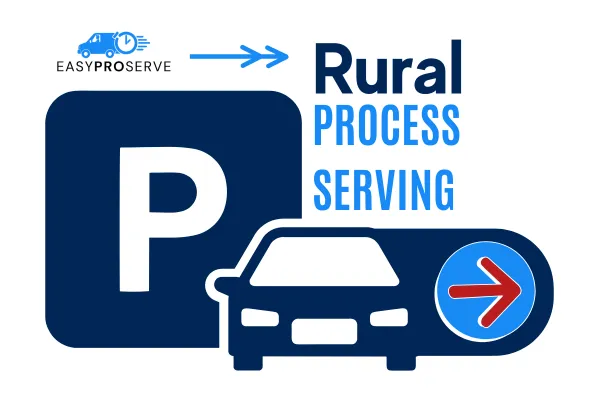
How to Serve Legal Documents in Rural Alberta
Introduction:
Serving legal documents in rural Alberta comes with its unique set of challenges and nuances compared to urban areas. Here's a guide tailored for process servers, attorneys, and anyone involved in legal document service in Alberta's countryside:

Understanding the Terrain
Rural Alberta spans vast landscapes, from the prairies to the foothills, where addresses might not be as straightforward as in cities. Here are some key points:
Address Systems: Many rural areas use rural route numbers or legal land descriptions rather than street addresses. Familiarize yourself with these systems to locate individuals accurately.
Travel Logistics: Plan for longer travel times. Consider weather conditions, road quality, and the need for four-wheel drive vehicles in certain seasons.
Communication Challenges: Cell service can be patchy or non-existent in some areas. Ensure you have alternative means of communication or know where you can find a signal if needed.
Methods of Service
In Alberta, serving legal documents follows specific rules, but in rural settings, you might need to adapt your approach:
Personal Service: This is the most common and preferred method. However, if the person is not at home, consider leaving the document with an adult at the residence or attempt service at their workplace if known.
Substituted Service: If personal service isn't possible, you can request court approval for alternative methods like leaving the document at the last known address or mailing it with proof of delivery.
Use of Local Knowledge: Leverage local post offices, community centers, or even local businesses for information or assistance in locating individuals.
Best Practices for Rural Service
Preparation: Before heading out, gather as much information as possible about the individual's whereabouts. Use public records, social media, or local directories to pinpoint their location.
Timing: Consider the best times for service. Rural residents might have different schedules, especially those involved in farming or ranching, which could affect when they're likely to be home.
Documentation: Keep meticulous records. In rural settings, where service might not be immediate, documenting your attempts is crucial for legal proceedings.
Respect Local Norms: Rural communities can be tight-knit. Approach with respect, explaining your role clearly to maintain good relations and avoid resistance.
Conclusion
Serving legal documents in rural Alberta requires patience, preparation, and an understanding of the local environment. By respecting the community, preparing for logistical challenges, and adapting methods of service, process servers can ensure that legal proceedings move forward smoothly, even in the most remote parts of the province. Remember, Rural service can be costly so it may be wise to get multiple quotes from different process servers. Whether you're a process server, lawyer, or involved party, these tips should help streamline the process of serving legal documents in Alberta's expansive rural landscapes
Overall, When legal matters are at stake, you want to ensure that all aspects of your case are handled with the utmost care and professionalism. Hiring a reliable Process Server in Calgary is a crucial. Contact EasyProServe today to learn more about how we take care of our clients and their process serving needs.